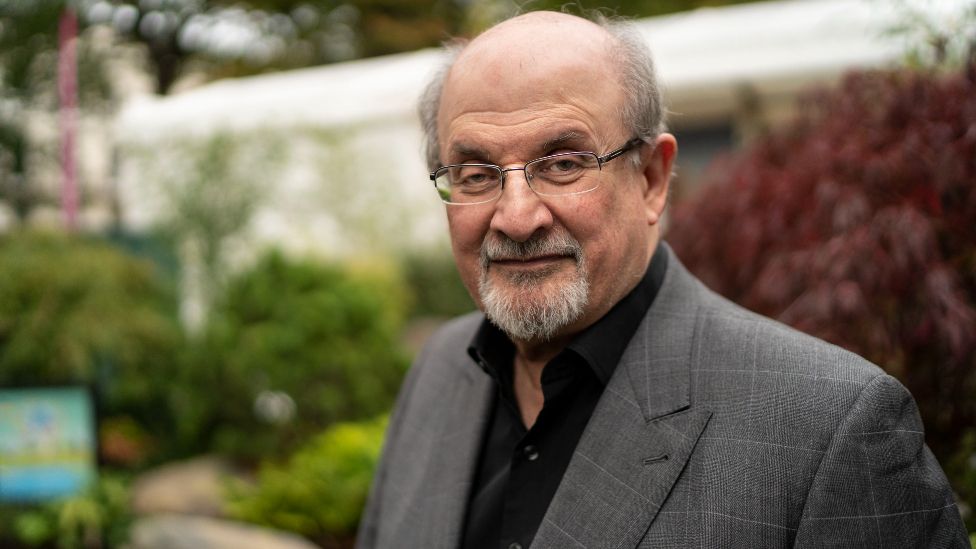

The IMSD condemns the murderous attack on Salman Rushdie in the strongest possible terms. There cannot be any doubt that the assault on the world-renowned writer is due to the Iranian fatwa in 1989 which pronounced that Rushdie should be killed for blaspheming against the prophet of Islam. Despite the apology tendered by Rushdie for ‘hurting the sentiments of Muslims’, the fatwa against him remained in force; the bounty on his head was doubled. In Islamic theology, an apostate can be forgiven if he apologizes but the blasphemer against the prophet is not to be given any such quarter; he has to be summarily executed. That a young Muslim man, Hadi Madar, who was not even born when Satanic Verses was published, willed to execute the fatwa, only goes on to prove the extraordinary sway of such a theology.
Any such attack is designed to create a regime of fear. Translators of Satanic Verses were killed, discussions on the book were violently repressed and bookstores were forced to take the novel off their shelves. The regime of fear made sure that very few stood with Salman Rushdie, except for those Islamophobes who delighted in telling the world that this thuggery was ‘real Islam’. Thirty-three years later, we hear the same loud silence from Muslim countries and organizations. None of the prominent Indian Muslim organizations have condemned this barbarous attack on a prominent writer. It is this silence that emboldens the Islamophobes to paint the religion as a creed of violence and terror.
The recent murder of Kanhaiya Lal for another case of Blasphemy by two Muslim fanatics, is another case in point of the intolerance within sections of the Indian Muslim community. Though all major Muslim organizations condemned the murder, but did do so under the pretext of a hate-crime, but refused to acknowledge the fact that it was a murder for blasphemy. Such is the blatant hypocrisy, which only serves to weaken and further isolate the Muslim community due to it’s dual standards.
It is rather rich on the part of Muslim organizations that they only remember human rights when they are being attacked but do not extend the same rights and dignity to others, Muslims or not, who differ from them on matters of religion. This is plain hypocrisy which does not help the Muslim cause. Being a minority, Indian Muslims should be championing a rights-based discourse on the importance of free speech and dissent. It is unfortunate that despite living in a political democracy for 75 years, Muslim organizations today are demanding a national blasphemy law. Muslims do not need the Hindu right wing to argue that Islam and human rights are incompatible; they themselves have been advertising this position for long.
Satanic Verses was one of the first novels to inquire into the nature of Muslim immigration into Europe. And yet the irony is that Muslims burnt it to proclaim a politics of distinction and separateness. The IMSD firmly states that without free speech, freedom to read, write and dissent, we cannot uphold the freedoms enshrined in our constitution. And we believe that only by investing in these freedoms can we uphold the values of our republic. In this hour of grave crisis, we stand firmly with Salman Rushdie and wish him speedy recovery. We once again appeal to all Muslim organizations to rethink their position on blasphemy; a form of politics which is doing Muslims more harm than good.
Endorsed by:
1. Prof. Ram Puniyani, Author, Mumbai
2. Medha Patkar, NAPM, Mumbai
3. Sultan Shahin, Editor, New Age Islam, Delhi
4. Prof. Zeenat Shaukat Ali, Islamic Scholar, IMSD, Mumbai
5. Yogendra Yadav, Swaraj Abhiyaan, Delhi
6. Anand Patwardhan, Documentary Filmmaker
7. Dr. Sunilam, Farmer’s Leader, Indore
8. Prof. Shamshul Islam, Delhi
9. Zakia Soman, BMMA, Ahmedabad
10. Irfan Engineer, CSSS, Mumbai
11. Anjum Rajabali, IMSD, Film Scriptwriter, Mumbai
12. Sandeep Pandey, Magsaysay Award, Lucknow
13. Justice Kolse Patil (Retd), Pune
14. Ghulam Rasool Delhvi, Classical Islamic Scholar, IMSD, Delhi
15. Adv. A J Jawwad, IMSD, Chennai
16. Amir Rizvi, Designer, IMSD, Mumbai
17. Faisal Khan, Khudai Khidmatgar, Delhi
18. Bilal Khan, IMSD, Mumbai
19. Shabana Dean, IMSD, Mumbai
20. Ali Bhojani, IMSD, Mumbai
21. Sheeba Aslam Ferhi, Researcher, Delhi
22. Aziz Lokhandwala, IMSD, Mumbai
23. Salim Sabuwala, IMSD, Mumbai
24. Saleem Yusuf, IMSD, Mumbai
25. Askari Zaidi, IMSD, Mumbai
26. Masooma Ranalvi, IMSD, Mumbai
27. Muniza Khan, IMSD, Mumbai
28. Hasina Khan, Bebaak Collective, Mumbai
29. Taizoon Khorakiwala, IMSD, Mumbai
30. Akbar Sheikh, IMSD, Sangli
31. Muhammad Imran, USA
32. Sadique Basha, IMSD, Mumbai
33. Mansoor Sardar, Bhiwandi
34. Nuruddin Naik, IMSD, Mumbai
35. Kasim Saif, Chennai
36. Prof. Qamarjahan
37. Lata P. M., Researcher, Bahujan Feminist, Mumbai
38. Prof. Rooprekha Verma, Lucknow
39. Prof. Rakesh Rafique, Moradabad
40. Prof. Rajiv, Lucknow
41. Jagriti Rahi, Gandhian, Varanasi
42. Prof. Ajit Jha, Swaraj Abhiyan, Delhi
43. Geeta Sheshu, Journalist, Free Speech Collective, Mumbai
44. Thomas Matthew, Delhi
45. Adv. Arun Maji, Dalit Human Rights Defender, Kolkatta
46. Shekhar Sonalkar, Writer, Sholapur
47. Adv. Lara Jesani, IMSD, Mumbai
48. Putul, Sarvodaya, Varanasi
49. Varsha Vidya Vilas, Social Activist, Mumbai
50. Guddi S L, Social Activist, Mumbai
51. Jyoti Badekar, Social Activist, Mumbai
52. Ravi Bhilane, Ex-Editor, Journalist, Mumbai
53. Vishal Hiwale, Save Constitution Movement, Mumbai
54. Prof. Om Damani, Mumbai
55. Prof. Vasantha Raman
56. Prof. Dipak Malik
57. Prof. Cyrus Gonda
58. Yashodhan Paranjpe, IMSD, Mumbai
59. Shalini Dhawan, Designer, Mumbai
60. Neelima Sharma
